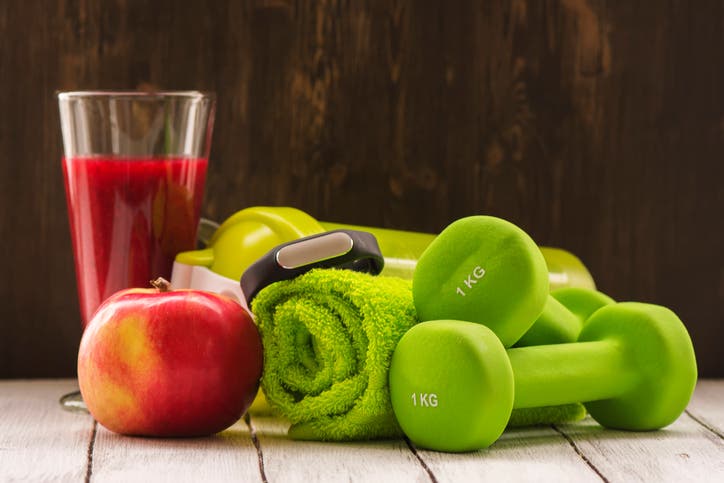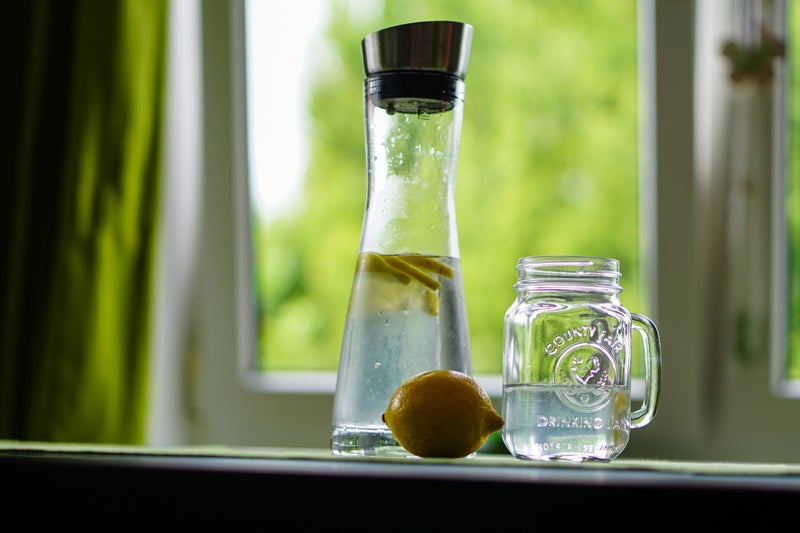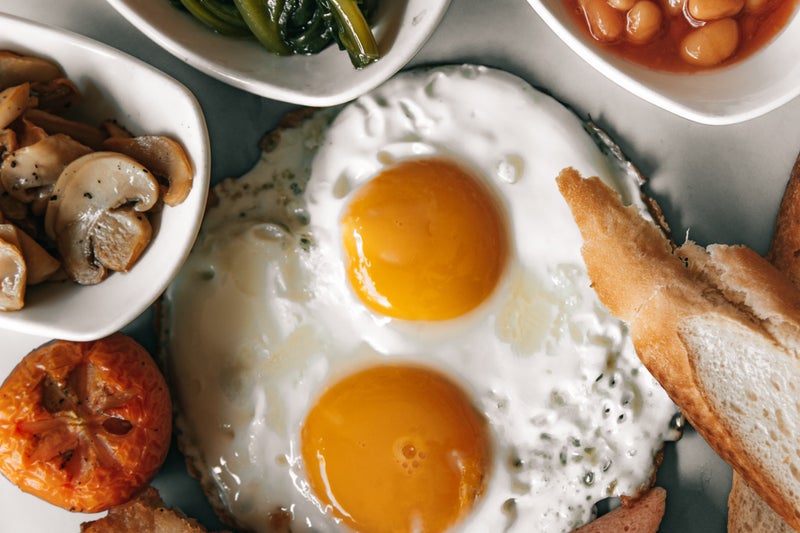The key to being healthy and in shape
By Abdul Quitzon
September 22, 2021
The key to being a healthy and in-shape person is not only how much you exercise but also what you eat. You may workout all the time and see little, to no results. You may even be getting further away from your ideal body. Diet is equally as important as exercising everyday and may even be more important when trying to see results.
If you are putting in the work it’s crucial to put in that same work into your diet. Many people believe they are following a strict diet but there are a lot of myths about what you should and should not be doing.
Cutting out sugar
Myth #1: You should completely eliminate sugar from your diet. I’m sorry to be the one to break it to you, but that’s an urban legend. It’s not true because doing so will almost certainly result in you being unable to satisfy your cravings, which will make it much more difficult for you to stick to your diet.
But don’t despair! There is a better way to go about it. Eating more nutrient-dense foods for your meals and snacks that fill you up and limit your sugar cravings is the way to go, so you don’t have to feel like you’re missing out on anything. Then, when you’re ready for dessert, have a piece of chocolate 30 to 40 minutes after eating your meal—that way it won’t disrupt your digestion!
Detoxing after lapsing on your diet
Myth #2: You need to detox after a big lapse in your diet. The fact is, most people’s diets aren’t perfect. When you’re working on improving your diet and making changes to the way you eat, it’s not uncommon for there to be times when you go off track—maybe even big-time. Maybe you had a birthday weekend, new year’s eve, or a holiday where you just couldn’t resist all the delicious food that was being offered to you.
Maybe it was a really long week at work and you just needed something comforting and warm on the weekend. Whatever the reason, we have all been there—and we’ve all come out of it feeling guilty and like we need to “detox” our bodies in order to get back on track. But here’s the thing: Detoxing isn’t necessary when you’re eating real foods like fruits, vegetables, whole grains and lean proteins—or even just getting back into your normal routine after taking some time out of it!
Midnight snacking
Myth #3: You gain weight if you eat late at night. We’ve all heard that eating late at night is bad for your health, and there’s a lot of information out there about how it can make you gain weight. But what does the science say? It’s true that eating too much, especially junk food, can lead to weight gain.
But research shows that eating late at night doesn’t cause weight gain on its own—it’s just a symptom of overindulging on unhealthy foods throughout the day. If you’re hungry at night, it means you didn’t eat enough during the day! To prevent overeating and get the most out of your meals, we recommend having your last big meal at least 2 hours before going to bed for optimal digestion and quality sleep.
Eggs are bad for you
Myth #4: Eggs are bad for you. Let’s get this one out of the way, shall we? Eggs are not unhealthy, as long as you’re eating them in moderation. In healthy individuals, consuming one or two eggs daily does not increase the risk of heart disease. Yes, the yolks contain cholesterol, but for the majority of us, the total amount from all of your meals is more harmful than the amount found in any one food.
Eggs also contain nutrients like omega-3s that may reduce the risk of developing heart disease. So go ahead and enjoy your omelets! Just don’t eat them every day—or your body will start craving something else that’s not so high in cholesterol.
Being cold makes you get a cold
Myth #5: The cold gives you a cold. Contrary to what your grandmother may have said, getting too much exposure to the cold doesn’t make you ill. According to one study, healthy men who spent several hours in temperatures just above freezing had an increase in their immune systems’ healthy, virus-fighting activity. In fact, because germs can spread easily indoors, you are more likely to become ill. The researchers found that when the men’s bodies were exposed to cold for a short time—only 20 minutes—their immune system sent out a stronger signal than usual.
This is good news for those of us who enjoy winter sports or just like bundling up with a scarf and gloves on a chilly day. The researchers also found that this increase in immune system activity lasted for about three days after the men were exposed to cold temperatures. So if you’re feeling like your energy is low or you’re feeling under the weather, take some time outside! Don’t worry – it’s highly unlikely that you’ll get a cold.
Conclusion
So there you have it! We’ve covered a lot of ground in this article, but we hope that you’ve learned a lot about how to stay healthy and make sure your body is working at its best. We’d like to leave you with one last piece of advice: don’t believe everything you hear!
There’s a lot of misinformation out there about what it takes to be healthy, so don’t be afraid to question what other people tell you about diet, exercise, and more. The best way to stay healthy is by listening to your own body—and following its cues. If you have any questions or comments about this article, please leave them below in the comments section. We’d love to hear from you!
Like what you’re reading?
Subscribe to our top stories
By entering your email and clicking Sign Up, you're agreeing to let us send you customised marketing messages about us and our advertising partners. You are also agreeing to our Privacy Policy.






